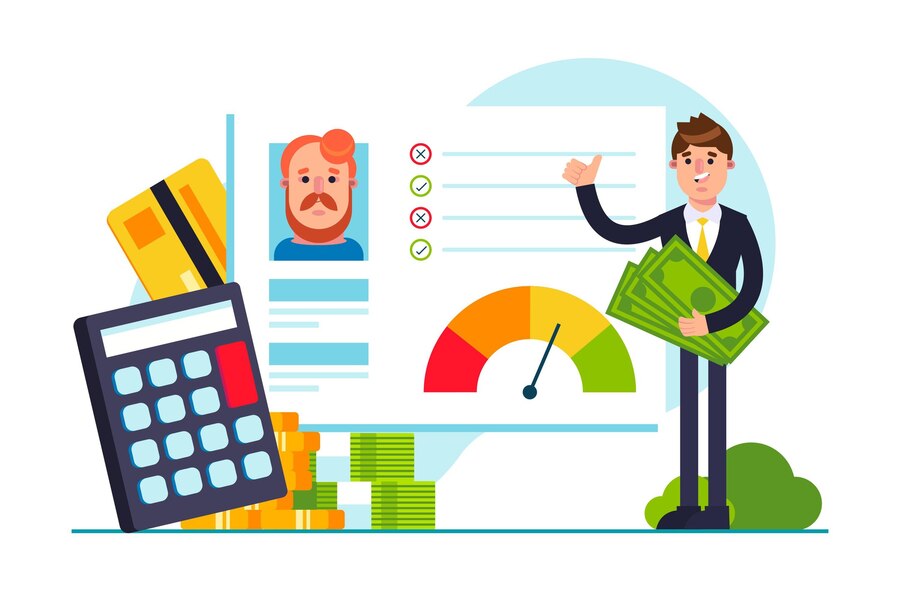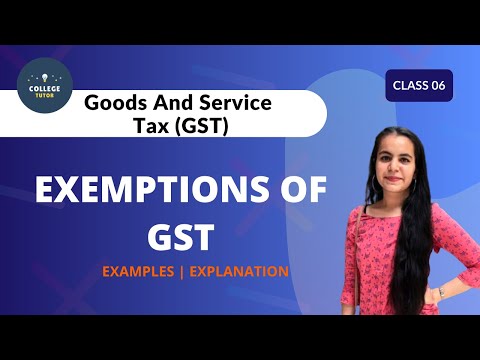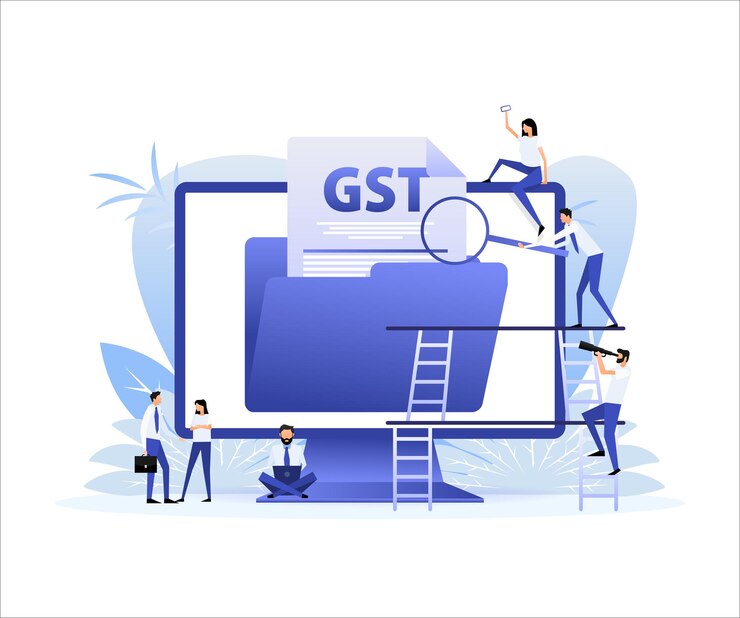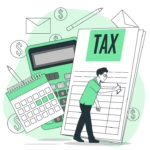Key Takeaways
- Exempt vs. Nil-Rated: Exempt supplies do not allow for input tax credit, whereas nil-rated supplies are taxed at 0% but allow input tax credit.
- Regulatory Changes: Services exempt from GST can become taxable if regulations or the GST law are amended.
- Compliance Penalties: Misclassifying taxable supplies as exempt can result in penalties, including fines and interest.
- List Updates: GST exemption lists are updated regularly based on decisions by the GST council, reflecting changes in economic policies or priorities.
- Correcting Errors: If GST is mistakenly charged on an exempt good, businesses should issue credit notes and adjust their GST filings to rectify the error.
Exempt supply in the context of Goods and Services Tax (GST) refers to goods or services that are free from the levy of GST. These supplies do not attract GST, and therefore, the provider of such supplies is not allowed to collect any rate of tax from the customer nor claim any credit for the Goods and Services Tax (GST) paid on their inputs.
Classification of Exemptions
Exemptions under GST are carefully categorized to ensure simplicity and clarity in compliance. These are primarily defined by either the nature of the goods or services or by specific conditions or scenarios described in the GST law.
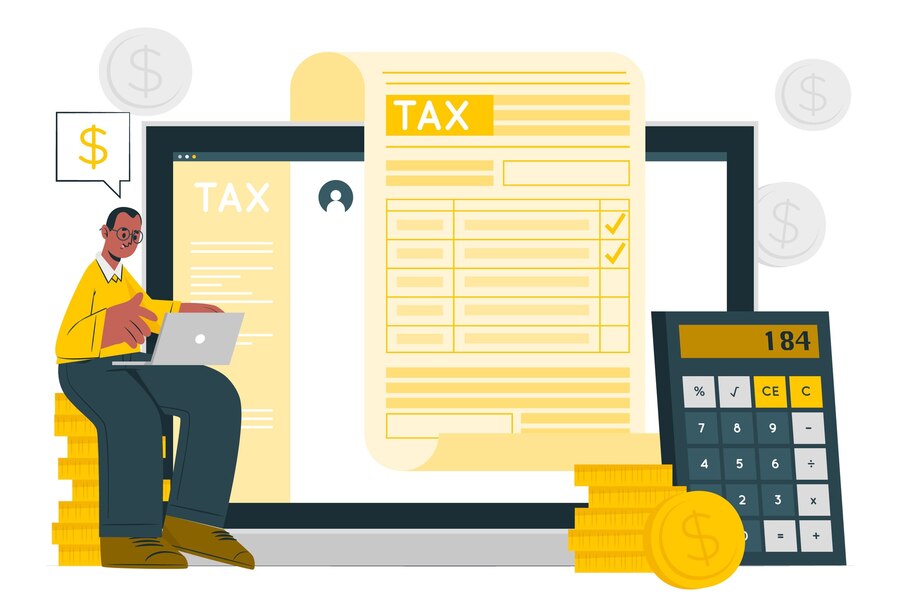
- Nil-rated supplies: These are goods or services on which the GST rate is set at 0%. Although no tax is payable, transactions must still be recorded and reported.
- Exempt Supplies: Supplies that are exempt from GST, meaning no tax is levied and no credit for input taxes paid is allowed.
- Non-Taxable Supplies: These are not subject to GST and typically fall outside the scope of GST law, such as alcohol for human consumption (regulated under state laws in some countries).
- Zero-Rated Supplies: Exports and supplies to special economic zones (SEZs) are often zero-rated, allowing sellers to claim refunds on input taxes paid.
- Reverse Charge Basis: Certain supplies require the recipient, rather than the supplier, to remit the GST to the government, emphasizing the responsibility on the buyer if conditions apply.
These classifications ensure the GST system is comprehensive, covering various types of transactions and providing clarity on tax obligations and entitlements.
Types of Exemptions
In GST frameworks, exemptions play a critical role in shaping the tax landscape for various goods and services. Here’s a detailed look at the two primary types of GST exemptions:
- Absolute Exemptions: These are items or services that are completely exempt from GST, meaning that no GST is charged at any point in the supply chain. This exemption is usually granted to essential goods and services that support basic societal needs, such as basic food items, healthcare services, and educational services. The purpose is to make these necessities more affordable for the general population.
- Conditional Exemptions: These exemptions apply to certain goods or services only under specific conditions. The exemption might be contingent upon the nature of the supply, the status of the supplier, the purpose of the use, or other criteria defined by GST laws. For example, services provided by charitable organizations may be exempt if they meet certain criteria set forth in the GST legislation. Conditional exemptions require careful compliance with the stipulated conditions to ensure that the supply of services remains exempt.
Exemption under one GST Law and the effect on another GST Law
When an exemption is granted under one GST law, it can have varying effects on compliance with another GST law, especially in countries with multiple jurisdictions like India or Canada, where both federal and provincial/state GST laws may apply. Here are key considerations of how an exemption under one GST law could influence another:
- Dual GST Systems: In countries with a dual GST system (CGST + SGST in India or GST + PST in Canada), an exemption under one regime (e.g., state) does not necessarily mean an exemption under the other (e.g., federal). Businesses need to verify whether the exemption applies at both levels.
- Input Tax Credits (ITC): Exemptions in one part of the tax system can affect the ability to claim ITCs across the system. If a product or service is exempt under state GST, for example, it might not be possible to claim ITCs for the CGST portion, affecting overall tax costs.
- Tax Cascading: Exemptions in one jurisdiction may lead to tax cascading effects in another if the laws are not harmonized. This situation occurs when tax paid on inputs cannot be fully recovered due to exemptions on outputs, leading to an increase in overall costs.
- Compliance Complexity: Managing exemptions under multiple GST laws requires robust compliance systems to ensure that all filings are accurate and that businesses do not inadvertently underpay or overpay tax.
- Inter-State Supplies: For businesses operating across state or national borders, understanding how exemptions apply to inter-state supplies is crucial. An item exempt in one state may not be exempt when supplied to another, affecting pricing and tax liability.
Important Notifications issued for exemption from payment of GST
The government has released a number of notifications outlining exemptions for particular goods and services or in certain circumstances. These documents are vital for businesses to stay compliant and updated.

- Exemption Notifications: These are official releases that specify goods or services exempt from GST. They outline the conditions under which these exemptions apply and may detail specific HS codes or service categories affected.
- Sector-Specific Exemptions: Notifications often include exemptions tailored to critical sectors of the economy such as agriculture, healthcare, education, and renewable energy, supporting broader economic and social objectives.
- Special Scheme Exemptions: For small businesses and startups, special schemes like the Composition Scheme allow for reduced tax rates and simpler compliance mechanisms, as detailed in specific notifications.
- Emergency Exemptions: In times of national emergencies or natural disasters, temporary exemptions or rate reductions may be announced to aid recovery and provide relief to affected populations and industries.
- Reverse Charge Mechanism Adjustments: Notifications may exempt certain categories of goods or services from the reverse charge mechanism, simplifying the tax process for businesses under specific conditions.
Treatment of ITC if supply is exempt
When a supply is exempt from GST, the treatment of Input Tax Credit (ITC) associated with such supplies is distinctly regulated. Here’s a concise overview:
- Ineligibility for ITC Claims: Businesses cannot claim ITC on the GST paid on inputs that are used to make supplies that are exempt from GST. This ensures that tax credits are only utilized against taxable outputs, maintaining the revenue-neutral aspect of GST.
- Apportionment Required: If a business deals with both taxable and exempt supplies, it must apportion input tax credits accurately. Only the portion of ITC related to the production or sale of taxable supplies can be claimed. The method for this apportionment should follow the guidelines provided by the GST laws.
- ITC Reversal: For businesses that switch from taxable to exempt supplies, there is often a requirement to reverse any previously claimed ITC that relates to the goods or services now used to make exempt supplies. This reversal must be documented and adjusted in tax filings.
- Record-Keeping for Compliance: Maintaining detailed records of purchases and their use in taxable versus exempt supplies is crucial. This documentation helps support the calculations and apportionments made for tax purposes.
- Financial Impact: The inability to claim ITC on inputs for exempt supplies can increase the cost of these inputs as the tax cost becomes a part of the overhead. Businesses need to consider this when pricing their exempt goods or services.
What is a non-taxable supply?
A non-taxable supply in the context of GST (Goods and Services Tax) refers to transactions or supplies that are not subject to GST and do not count towards GST liability. Here are key points to understand about non-taxable supplies:
- Definition: Non-taxable supplies are those goods or services on which GST is not levied. They differ from zero-rated supplies, as zero-rated implies that the goods are taxable but the rate of GST is 0%, allowing the seller to claim input tax credits.
- Examples: Common examples of non-taxable supplies might include certain financial services, residential rent, and services provided by government entities that are outside the scope of GST legislation.
- Input Tax Credits: Input tax credits cannot be claimed for GST paid on inputs used to make non-taxable supplies, as these supplies do not contribute to taxable outputs.
- Impact on Businesses: Businesses that deal primarily in non-taxable supplies must carefully manage their input costs, as they cannot recover GST paid on their purchases through input tax credits.
- Reporting Requirements: While non-taxable supplies are not subject to GST, they must still be reported on tax returns and other financial documents to comply with regulatory requirements and for complete financial transparency.
The negative list under GST
The negative list under GST refers to a list of goods and services that are not subject to the Goods and Services Tax (GST). Here are key aspects of what typically appears on this list:
- Non-Taxable Supplies: This includes items that GST laws specifically exclude from taxation, ensuring they are outside the tax regime.
- Exempt Supplies: These are supplies of goods and services that the government has identified as necessary for social, educational, or economic reasons, and therefore, they are exempt from GST.
- Essential Services: services like healthcare, education, and other public services that are often placed on the negative list to make them more accessible without the added burden of taxation.
- Financial Services: Because other regulatory tax frameworks handle transactions involving financial services, such as insurance, loans, and bank fees, GST is frequently not applied to them.
- Real Estate: Residential real estate is commonly found on the negative list to exclude personal housing from GST to reduce the economic burden on homeowners.
Difference between Exempt, Nil Rated, Zero Rated and Non-GST supplies
| Category | Tax Rate | GST on Output | Input Tax Credit | Description |
|---|---|---|---|---|
| Exempt | N/A | No | No | Supplies that are exempt from GST. Businesses cannot charge GST on these products or services and cannot claim input tax credits. |
| Nil Rated | 0% | No | No | Supplies on which the GST rate is 0%. Businesses charge no GST but also cannot claim input tax credit. |
| Zero Rated | 0% | No | Yes | It generally applies to exports or supplies to special economic zones (SEZs). Businesses charge no GST but can claim input tax credits. |
| Non-GST | N/A | No | No | Supplies that do not fall under the scope of GST at all. There’s no GST charged, and no input tax credit is allowed. |
Exempted Goods in GST exemption list
In the GST regime, certain goods are exempted from tax to reduce the economic burden on consumers and promote essential goods and services. Here’s a look at some of the commonly exempted goods under the GST exemption list:
- Basic Food Items: Items like fresh fruits, vegetables, milk, and bread are exempt from GST to ensure they remain affordable for the general population.
- Healthcare Services: Essential healthcare services and related goods, such as life-saving drugs and medical equipment, are exempt to ensure public access to necessary healthcare.
- Educational Services: Typically, educational institutions are exempt from having to promote their services as well as related products like textbooks and educational materials.
- Agricultural Supplies: Many agricultural inputs, such as seeds, fertilizers, and farm equipment, are exempt from GST to support the agricultural sector, a vital part of the economy.
- Cultural Items: Goods related to cultural importance, such as folk art items, may be exempted to preserve cultural heritage.
This exemption list is subject to updates and changes based on policy revisions, so businesses and consumers must stay informed about the latest GST notifications and guidelines. These exemptions aim to support essential services, relieve economic pressure on citizens, and support various sectors crucial for the country’s development.
Exempted Services in GST exemption list
In the GST framework, certain services are exempt from tax to promote social welfare, support small businesses, and reduce the tax burden on essential services. Here is a detailed list of commonly exempted services in the GST exemption list:
- Healthcare Services: Services provided by a clinical establishment, an authorized medical practitioner, or paramedics, and services provided by way of transportation of patients in an ambulance are exempt from GST.
- Educational Services: Services provided by an educational institution to its students, faculty, and staff are exempt. This includes services such as admission to or conduct of examination by such institutions.
- Charitable Activities: Services provided by an entity registered under Section 12AA of the Income Tax Act, 1961, by way of charitable activities are generally exempt from GST.
- Services by Government or Local Authorities: Some services provided by the central government, state government, union territory or local authority to individuals other than business entities are exempt. This includes services like issuance of passport, visas, driving license, birth or death certificates, etc.
- Public Transportation: Public transport services like metro, monorail, or tramway, inland waterways, and public buses, along with transportation of goods or passengers by non-air-conditioned stage carriage, are also exempt from GST.
- Renting of Residential Dwellings: Renting of residential dwellings for use as a residence is exempt from GST, which helps in reducing the cost of living for individuals.
These exemptions are designed to support essential services that cater to the basic needs of society, promote charitable activities and education, and provide relief to government services from the tax burden.
What is the exemption limit for GST?
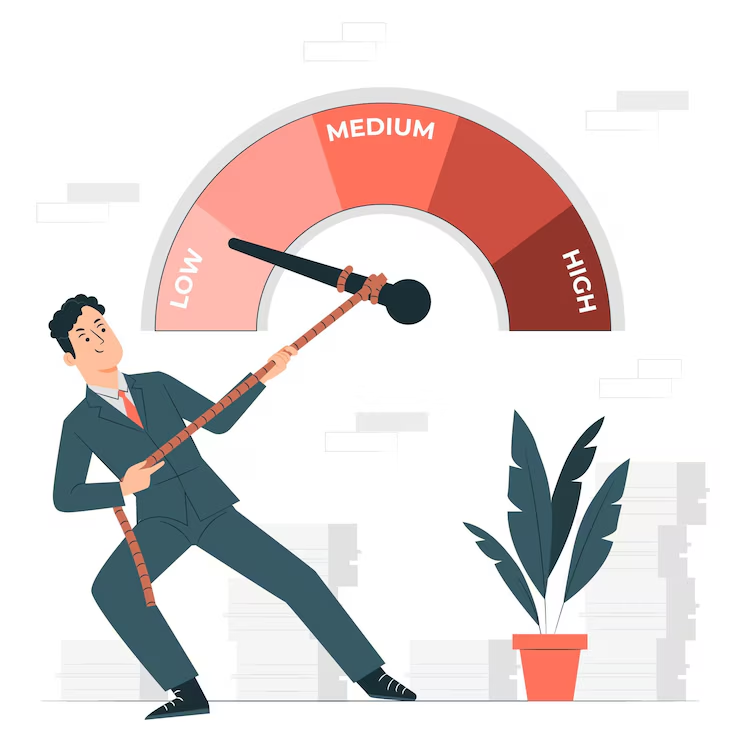
The exemption limit for GST (Goods and Services Tax) is a threshold below which a business or individual is not required to register or pay GST. This limit is designed to alleviate the tax burden on smaller businesses and simplify tax compliance.
Here’s an overview of the current GST exemption limits:
- General Limit: The general exemption limit for GST registration is Rs. 20 lakhs of annual aggregate turnover. This means that if a business’s annual revenue is below this threshold, it is exempt from registering for GST.
- Special Category States: For special category states (as notified by the government under the GST Act), the exemption limit is Rs. 10 lakhs. This lower threshold applies to states like North-Eastern states, Himachal Pradesh, Uttarakhand, and Jammu & Kashmir.
- Composition Scheme: Small businesses with an annual turnover of up to Rs. 1.5 crores (Rs. 75 lakhs for special category states) can opt for the GST Composition Scheme, under which they pay GST at a fixed applicable rate of turnover and file returns quarterly, simplifying compliance and reducing tax liability.
- Service Providers: For service providers, the exemption limit is also Rs. 20 lakhs (Rs. 10 lakhs for special category states), similar to the limit for goods.
- Voluntary Registration: Even if a business is under the exemption threshold, it may choose to register for GST voluntarily. This allows the business to claim input tax credit and is often beneficial for those dealing with other GST-registered businesses.
These limits help small businesses and service providers reduce administrative burdens and compliance costs associated with GST registration and filing. It’s important for businesses to monitor their turnover and ensure they comply with the relevant thresholds and regulations.
How to claim GST exemption?
Claiming a GST exemption involves understanding which goods or services are eligible under the exemption criteria and correctly documenting these transactions to comply with GST laws. Here’s a step-by-step guide on how to claim a GST exemption:
- Step 1: Identify Eligible Goods or Services: First, determine if the goods or services you provide are classified under the GST exemption list. This information can typically be found on the official GST portal or through notifications issued by the tax authority.
- Step 2: Documentation and Compliance: Maintain accurate records of all transactions involving exempt supplies. This includes invoices, receipts, and detailed descriptions of the goods or services.
- Step 3: No GST Charged: For exempt supplies, ensure that no GST is charged to customers. The tax invoice should clearly indicate that the goods or services are exempt, and hence, no GST is applicable.
- Step 4: GST Returns: When filing GST returns, report the exempt supplies in the appropriate section. This ensures transparency and compliance with tax regulations, showing that no tax was collected on these supplies.
- Step 5: Review Regulatory Updates: Stay updated with any changes in the GST law or exemption list, as the tax authority may periodically update the categories of exempt supplies based on economic policies or legislative changes.
- Step 6: Consult a Tax Professional: If there is any ambiguity or confusion about whether a supply is exempt, consult with a GST expert or tax professional to ensure compliance and avoid any potential penalties.
By following these steps, businesses can effectively manage their GST obligations and ensure that they correctly claim exemptions where applicable.
Who is eligible for GST claim?
Eligibility for claiming GST (Goods and Services Tax) involves several criteria that determine whether a business or individual can recover GST paid on inputs. Here’s a detailed look at who is eligible to claim GST:
- Registered Persons: Only individuals or entities registered under GST can claim input tax credit (ITC). This includes businesses, manufacturers, and service providers who have obtained a valid GST registration.
- Business Purpose: GST can be claimed only on goods and services used for the purpose of the business. This means that inputs need to be directly related to the production of taxable supplies.
- Taxable Supplies: The claimant must be making taxable supplies, including zero-rated supplies. GST cannot be claimed if the business only supplies exempt goods or services.
- Valid Tax Invoices: To claim GST, the registered person must possess valid tax invoices or debit notes issued by a registered supplier. These documents must include all necessary details as prescribed under GST law.
- Timely Claim: GST claims must be made within the specified time limits. Generally, ITC can be claimed in the tax period in which the invoice is received and in any of the subsequent months, but not later than the due date of the return for September following the end of the financial year in which the invoice was issued or the date of filing the relevant annual return, whichever is earlier.
- Compliance with GST Returns: The claimant must be compliant with GST filing requirements. This includes timely submission of GST returns such as GSTR-1 (details of outward supplies), GSTR-2A (auto-drafted details of inward supplies), and GSTR-3B (summary of outward supplies, input tax credit claimed, and tax payable).
- No Block Credit Items: Certain expenses like motor vehicles for personal use, employee-related costs not directly related to business, or construction of immovable property (other than plant and machinery) are blocked under GST, and ITC cannot be claimed on these items.
These criteria ensure that the ITC system within GST remains robust, preventing fraud and ensuring that the tax credits are only claimed by those who are legitimately entitled to them. Businesses must maintain proper records and adhere to compliance norms to effectively manage their GST claims.
How to get a GST rebate?

Obtaining a GST rebate, often referred to as claiming an input tax credit (ITC), is an important aspect of managing business finances under the Goods and Services Tax (GST) framework.
Here’s a guide on how to get a GST rebate:
- GST Registration: Ensure your business is registered under GST. Only registered businesses are eligible to claim GST rebates on the input tax paid on their purchases.
- Taxable Supplies: Your business must be involved in making taxable supplies. GST rebates cannot be claimed for businesses only dealing in exempt, nil-rated, or non-GST supplies.
- Valid Tax Invoices: Collect and maintain valid tax invoices for all purchases and expenses on which GST has been paid. According to GST law, the tax invoices must have all the necessary information.
- Filing GST Returns: File your GST returns on time. Claim the input tax credit in your GST returns. The ITC must be claimed within the stipulated time limits—generally within the financial year or before the due date of the September return following the end of the financial year, or before filing the annual return, whichever is earlier.
- Reconciliation: Reconcile your purchase invoices with the GST returns filed by your suppliers. The details of your purchases and the GST paid must match the information available in the form GSTR-2A or GSTR-2B generated by the GST portal.
- Utilize ITC: Use the claimed ITC to offset your GST liability on outward supplies. This can substantially reduce your net GST payments.
- Documentation and Compliance: Keep all documentation related to GST transactions, invoices, and returns filed for at least six years in case of any future audits by tax authorities.
- Consult a GST Practitioner: For complex situations or large businesses, it may be advisable to consult with a GST practitioner to ensure all GST rebate processes are handled correctly.
By following these steps, businesses can effectively manage their GST inputs and maximize their tax rebates, thereby reducing the overall tax burden and improving cash flow.
Conclusion
GST exemptions are essential for compliance and effective financial management in a business. These rules help to alleviate the tax burden on essential services and small businesses, fostering a more equitable economic environment. The distinctions between exempt and nil-rated supplies under GST are crucial for proper tax compliance. Businesses must stay informed about changes in GST laws and exemption lists to avoid penalties associated with misclassification.
Regular updates from the GST council require businesses to be proactive in their compliance strategies. Correcting mistakes, such as accidentally charging GST on exempt goods, involves issuing credit notes and adjusting tax filings, ensuring that businesses maintain compliance while managing their tax liabilities effectively. Keeping abreast of these elements helps ensure smooth financial operations and adherence to tax regulations.
💡Missing the deadline to pay GST payments? Download Pice and start using a credit card to pay GST on time, experience efficiency and convenience, and manage cash flow more effectively.
FAQs
What is the primary difference between exempt and nil-rated supplies?
Exempt supplies are those on which no GST is charged and no input tax credit can be claimed. Nil-rated supplies, on the other hand, are those on which GST is legally charged at 0%, allowing businesses to claim input tax credit on purchases used to make the nil-rated goods or services.
Can a service that was once exempt from GST become taxable?
Yes, a service that was once exempt from GST can become taxable if there are changes in GST laws or regulations. These changes are usually made through amendments to the law or through notifications issued by the government.
Are there any penalties for wrongly classifying taxable supplies as exempt?
If a business wrongly classifies taxable supplies as exempt, they can face penalties, including fines and interest on the amount of tax that should have been paid. The severity of the penalty often depends on whether the misclassification was due to reasonable cause or intentional evasion.
How frequently do GST exemption lists get updated?
The GST council, which meets on a regular basis, updates GST exemption lists in accordance with its policy decisions. These updates can occur multiple times a year as economic conditions and government priorities change.
What steps should a business take if they mistakenly charge GST on an exempt good?
If a business mistakenly charges GST on an exempt good, they should issue a credit note to the customer for the amount of GST charged. They should also adjust their GST returns accordingly to correct the error in their tax filings, ensuring compliance and correcting the tax record.
